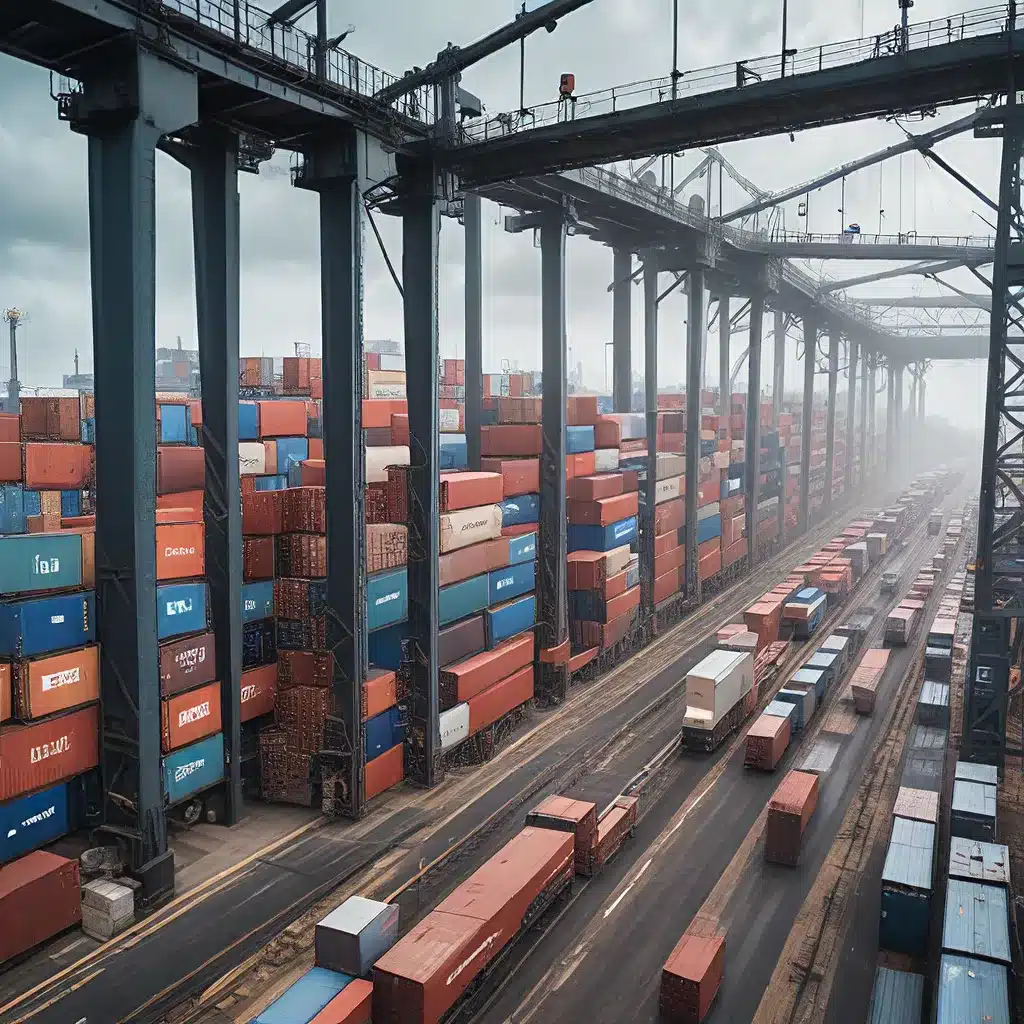
The Rise of AI in Supply Chain Management
The digital revolution has transformed the way businesses approach supply chain management. Artificial Intelligence (AI) has emerged as a game-changer, enabling organizations to unlock unprecedented levels of visibility, efficiency, and resilience across their supply chain operations.
As global supply chains continue to grow in complexity, traditional methods have become increasingly inadequate in addressing the multitude of challenges. Fluctuating demand, dynamic market conditions, and the need for real-time decision-making have led companies to seek innovative solutions. AI-powered supply chain management has emerged as a powerful approach to navigate these complexities and drive sustainable competitive advantages.
Enhancing Inventory Management and Warehouse Optimization
One of the key areas where AI is making a significant impact is in inventory management and warehouse optimization. Intelligent algorithms can analyze vast amounts of data, including historical sales patterns, customer behavior, and market trends, to forecast demand with remarkable accuracy. This enables companies to maintain optimal inventory levels, minimizing the costs associated with overstocking or stockouts.
AI-driven systems can also simplify warehouse operations, automating tasks such as item retrieval, pick-and-pack processes, and proactive maintenance. By integrating IoT (Internet of Things) sensors and real-time data monitoring, these systems can identify bottlenecks, improve worker safety, and enhance overall productivity.
Predictive Maintenance and Supplier Reliability
Another critical aspect of supply chain management is the ability to predict and mitigate potential disruptions. AI-powered analytics can analyze vast datasets, including equipment performance, supplier lead times, and transportation patterns, to identify early warning signs of potential issues. This allows companies to proactively address problems before they escalate, minimizing the impact on customer service and operational efficiency.
By leveraging AI-driven predictive maintenance, organizations can forecast equipment failures and plan for timely maintenance, reducing downtime and ensuring a more reliable supply chain. Additionally, AI can provide enhanced visibility into supplier performance, enabling companies to better manage lead times, quality, and overall reliability.
Enabling Demand-Driven Supply Chain Management
Accurately forecasting and responding to fluctuating demand is a constant challenge for supply chain professionals. AI-powered demand sensing capabilities can analyze a multitude of data sources, including customer purchasing patterns, market trends, and environmental factors, to provide real-time insights into evolving demand patterns.
This demand-driven approach allows companies to adjust production, procurement, and logistics in a proactive manner, minimizing the risk of stockouts or overproduction. By integrating AI into their supply chain management, organizations can improve order fulfillment, reduce waste, and enhance overall customer satisfaction.
Optimizing the End-to-End Supply Chain
The true power of AI in supply chain management lies in its ability to provide a holistic, end-to-end view of the entire supply network. By leveraging advanced analytics and digital twin technologies, companies can simulate and optimize their supply chain operations, identifying opportunities for improvement across every stage of the process.
This comprehensive approach enables organizations to balance trade-offs, optimize profitability, and enhance resilience in the face of disruptions. From procurement and manufacturing to logistics and sales, AI-driven supply chain management can unlock significant value and drive sustainable competitive advantages.
Addressing the Challenges of AI Implementation
While the potential benefits of AI in supply chain management are substantial, successfully implementing these solutions is not without its challenges. Companies must address a range of organizational, technological, and data-related hurdles to ensure a seamless transition.
One of the key challenges is aligning the organization’s strategy and objectives with the implementation of AI-powered solutions. Lack of internal alignment and a clear business case can lead to project delays, budget overruns, and ultimately, falling short of expectations.
Additionally, integrating AI systems with existing technology stacks and overcoming data silos can be a significant obstacle. Companies must ensure that their data is of high quality, accessible, and properly consolidated to unleash the full potential of AI-driven insights.
The Path Forward: Agile Adoption and Continuous Improvement
To navigate these challenges, supply chain organizations are increasingly adopting an agile approach to AI implementation. Rather than pursuing a large-scale, all-encompassing transformation, companies are leveraging third-party vendors and scalable solutions to integrate AI in a more cost-effective and iterative manner.
This approach allows for faster deployment, continuous learning, and the ability to adjust strategies as business needs evolve. By focusing on specific pain points and quickly implementing targeted AI solutions, companies can realize tangible benefits while building the necessary organizational capabilities and infrastructure to sustain long-term success.
Conclusion: Embracing the AI-Powered Supply Chain
As the global business landscape continues to evolve, AI-driven supply chain management has become a critical competitive advantage. By harnessing the power of advanced analytics, predictive modeling, and automation, organizations can unlock unprecedented levels of visibility, efficiency, and resilience across their entire supply chain.
Whether it’s optimizing inventory levels, enhancing supplier reliability, or enabling demand-driven planning, AI-powered solutions are transforming the way supply chain professionals approach their day-to-day operations. By embracing this transformative technology, companies can position themselves for long-term success in an increasingly dynamic and competitive global market.
The future of supply chain management is undoubtedly AI-powered, and the organizations that take proactive steps to integrate these innovative solutions will be well-positioned to thrive in the years to come.